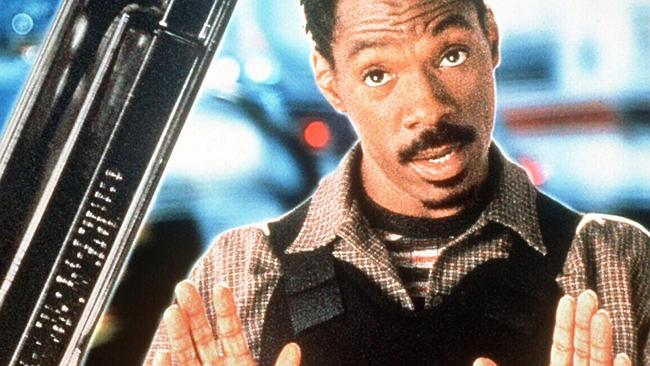Seven traps to avoid at the negotiating table
PACK a punch at the negotiating table by owning your power — and avoid these seven common pitfalls.

Work
Don't miss out on the headlines from Work. Followed categories will be added to My News.
YOU can’t always get what you want, or even what you deserve — you get what you negotiate.
That’s according to Dr Matt Lohmeyer, a professional negotiator whose firm Negotiation Partners works with such titans as BHP, Coles and the Royal Australian Army.
Doing deals with big business, government and military contractors requires “pretty heavy duty skills”, but Dr Lohmeyer says the most important element in negotiating is to “be prepared”.
“Know exactly where you can go, and where you can’t, so you’re not bullied into a position where it’s not a good place for you,” he told news.com.au.
And don’t be swayed by “bully boy tactics”; if a party is sitting across the table from you, remember that they are there because they want something you have. It’s your job to ask the right questions to find out what that is.
“Most of the time, it is theatre,” Dr Lohmeyer said.
“Work as a team, go in not just by yourself. You can take a lot of heat out of it by passing the ball to each other.”
Ultimately, success depended on remaining confident enough to “keep playing, not conceding without getting anything back in return”.
“It’s about managing the process and how to make the negotiation flow, when to accelerate and when to slow down,” Dr Lohmeyer said.
“Be aware of the power of your product; they want something from you, otherwise they’d walk out. Just make sure you get what it’s worth.”
But whatever you do, Dr Lohmeyer said, steer clear of these seven deadly, but common mistakes:
1. ASKING FOR SUBSTANTIALLY MORE THAN YOU NEED
A shock opening only works if you are dealing with people who don’t know what they are doing, or who don’t know the marketplace. Don’t believe those who tell you that your first offer should always have “shock value” — in most settings, this is foolish. Trying to see if you can get lucky is best left for the roulette table. At the negotiating table, opening with an extreme position is deadly. At best, you will look like a fool who doesn’t understand the market; at worst, the other side will just laugh and leave, depriving you of the opportunity to negotiate at all. Even if they humour you, you then have to make large unilateral concessions to moderate your “shock” demand back to more reasonable levels, which weakens your negotiating position and credibility.
Be optimistic, but remain realistic when making demands and proposals.
2. TRYING TO TAKE THE LAST DOLLAR OFF THE TABLE
There is always a better deal out there. Pushing on beyond what is already a good deal exposes you to danger and the law of diminishing returns. As a negotiator, you need to know what a good deal looks like and when to shake on a good deal. The secret is careful preparation. We observe this in negotiations a lot: greed takes over and the temptation to push for just one more concession. Sometimes you get away with it: sometimes it’s that last demand that collapses the entire deal and causes resentment you’ll be reminded of for years. Don’t chase the last dollar, chase the next profitable deal instead. Prepare carefully, know exactly what you want and don’t risk a perfectly good deal in pursuit of a perfect one.
3. ACCEPTING THE FIRST OFFER
People expect you to counter their first offer. Imagine someone has advertised a car for $15,000. You offer them $8,000 and they say: “sold”. How would you feel? You’d probably think: Damn, I should have started with $6,000.” Your second thought might be: “There’s something wrong with this car.” Similarly, the other side will realise that you would probably have been happy to pay more. Taking the first offer is an easy way to ensure that both sides will regret the deal. Always work to improve on a first offer; both parties will be happier.
4. GETTING EMOTIONALLY ATTACHED TO THE DEAL
Emotions have a habit of undermining skill and clouding rational judgment. Especially in the final stages of a negotiation, there are two deadly emotional traps we often set for ourselves. After you have negotiated for a long time, have invested yourself, your creativity and much effort into the deal, you may come to think of the deal as “your deal” or “your baby”. From that point, it becomes really hard to kill, even if your baby has turned feral. Ringing the bell prematurely or pre-selling the deal to management can also entrap you. Walking away or even a delay in delivery can now create a huge face issue for you. If you are emotionally invested, wily counterparties will use emotional pressure to keep you in the deal and to extract last-minute concessions that may make you regret the deal in the cool light of day. Stay objective and remain as emotionally uncommitted to the deal as you can. Regularly ask colleagues who are not involved in the deal for their feedback.
5. NOT KNOWING WHEN YOU’RE BETTER OFF WALKING AWAY
Some of the best deals you will ever do are those you walk away from. Almost everyone will nod sagely when you say this, but in practice it can require great courage to walk. There may be a corporate expectation to “do a deal”; others may view you as “weak” or even mandate you to “push on”. Your only defence is solid preparation. You must be crystal clear about your best alternative to a negotiated agreement — in negotiator speak, this is called your BATNA. If what you want is not available or if the current deal is worse than your BATNA, you should walk away. Know your BATNA, ensure it is sound and actionable and keep measuring the deal against your alternatives as you go.
6. BLUFFING, LYING AND MAKING THREATS YOU WON’T CARRY OUT
Your credibility is one of the most valuable assets you have as a negotiator. That credibility is hard won and easily lost. One of the fastest ways to lose your credibility is to make threats, which you then don’t have the authority or the courage to follow-through. The other side will be wondering what else you don’t have authority to say and won’t believe you next time you use a sanction. Another way to demolish your credibility is by lying, misleading or by making promises you can’t or won’t honour. Don’t blow your credibility. The other side needs to know that your sanctions and deadlines are hard and real. Don’t put your credibility at risk. Play it straight and be firm on the issues. Only signal a potential sanction if you are prepared and authorised to impose it.
7. NOT TELLING THE OTHER SIDE CLEARLY WHAT YOU WANT
The best way to ensure that you don’t get what you want is to keep the other side guessing about what you want. The sooner both sides clearly tell each other what they need, the sooner both sides can start working on a deal that will work. It’s so simple, yet there is a strong tendency in business to keep much of the available information hidden. Skilled negotiators know what to disclose and what to hold back. This is a vital balance, because information is at the core of good deals. In our experience, poor and insufficient information disclosure is the most common cause of deal failure. Ensure the other side knows clearly what you are after, while being careful not to disclose information that will disadvantage your position. Do you know how to prepare most efficiently? What are the six most effective responses to a proposal? How do you block a demand without offending the other side? Negotiation is a learnt skill, and there is much to learn. Challenge us to see if we can help you raise your game at the negotiating table — and in your private life.
Dr Lohmeyer will teach a negotiation master class for entrepreneurs in Sydney this September.
Originally published as Seven traps to avoid at the negotiating table






